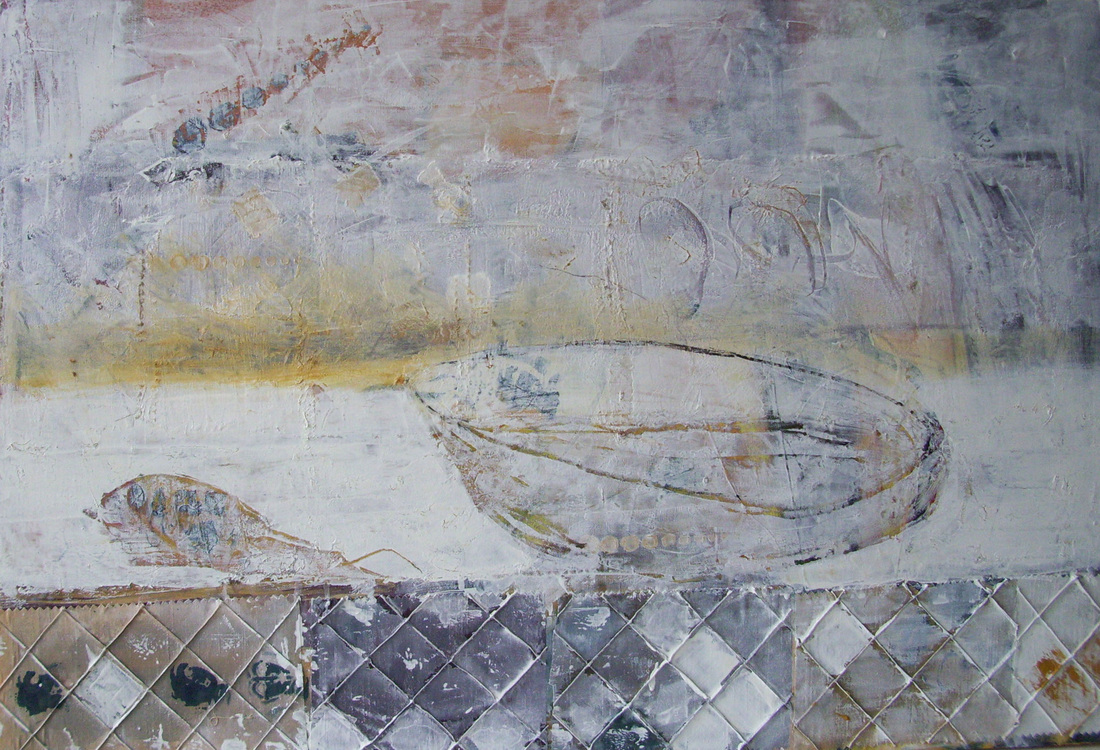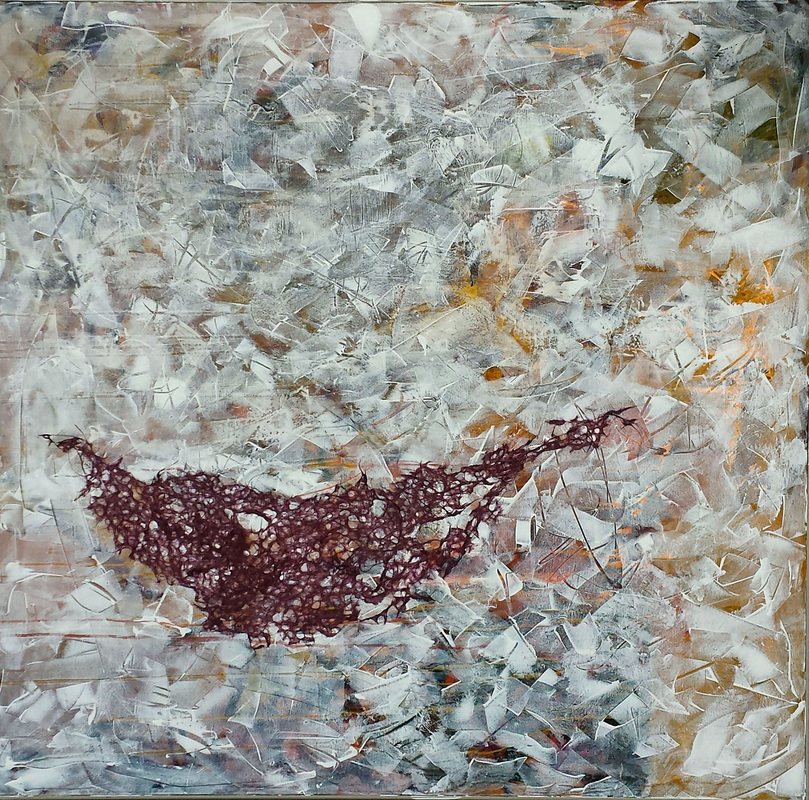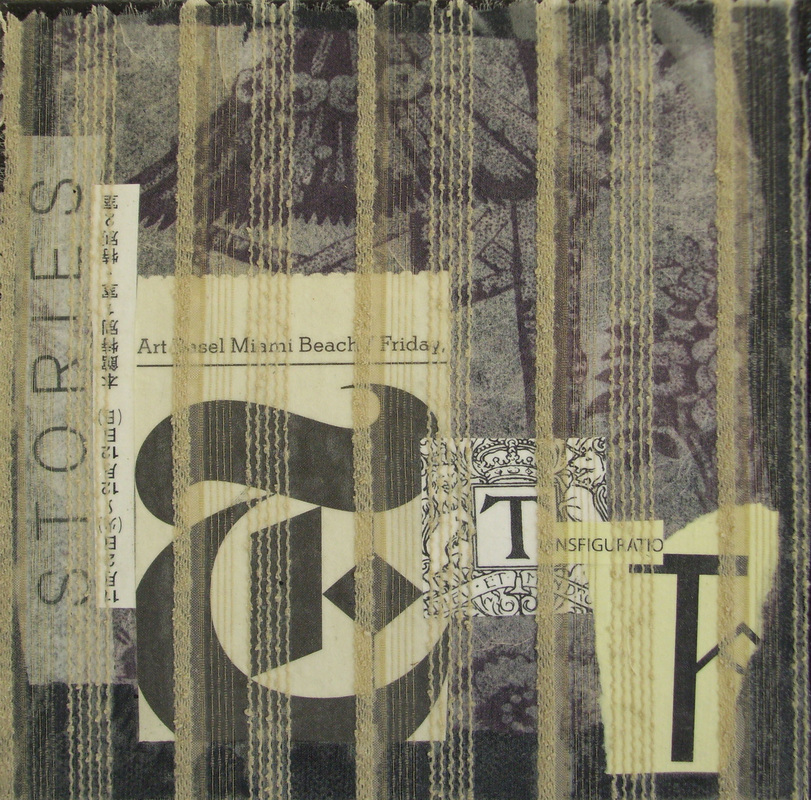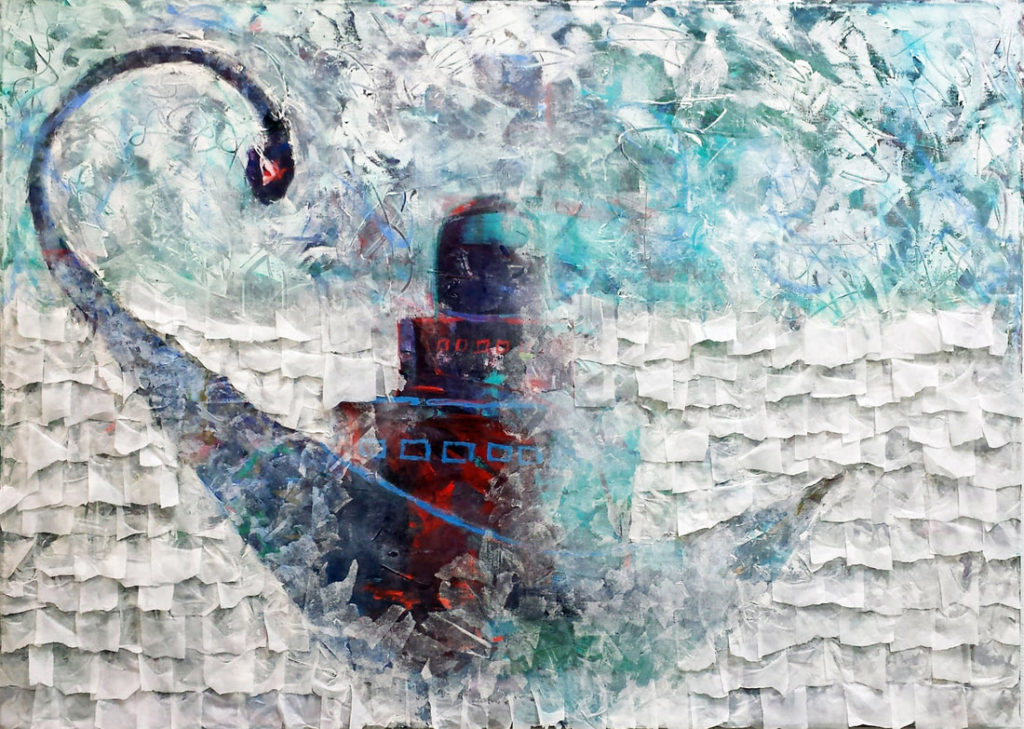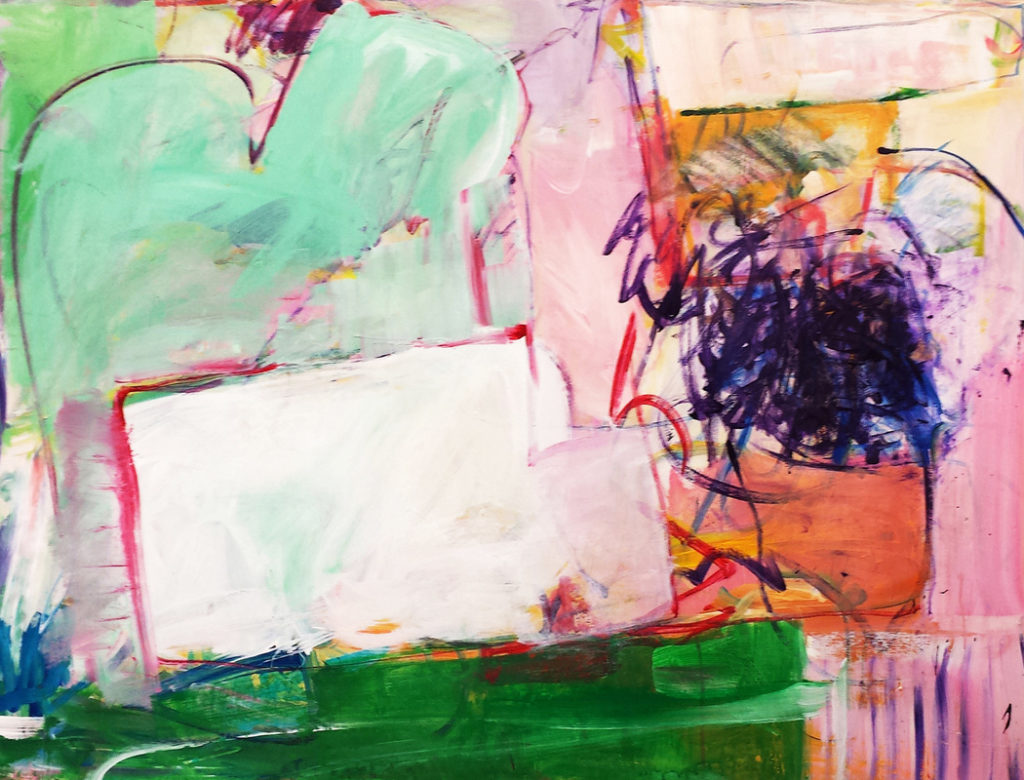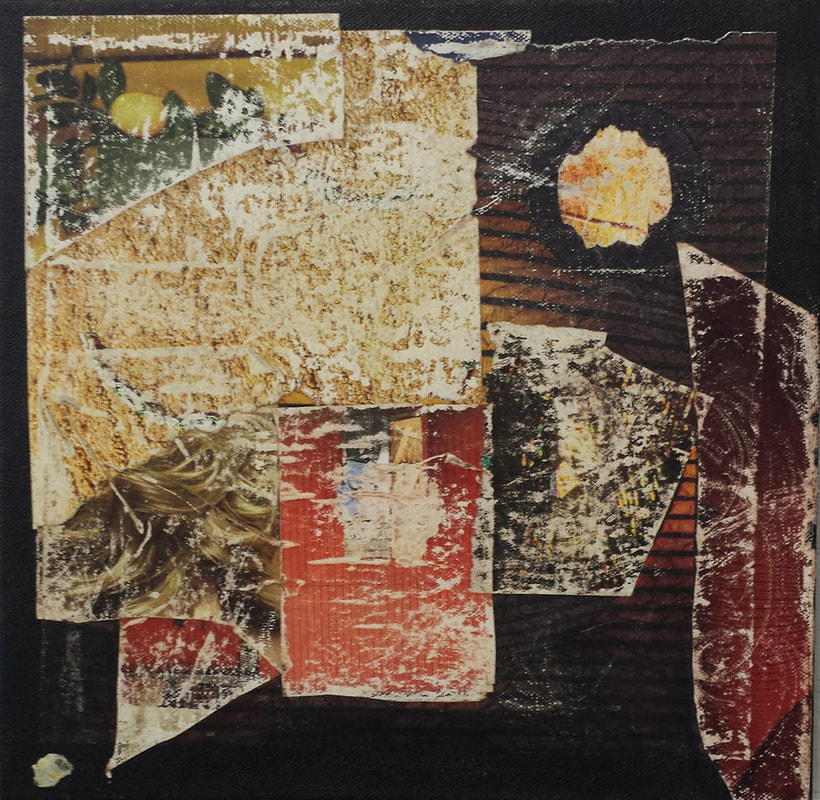
“Transformation,” by Kathy O’Meara
Memory believes before knowing remembers.
~William Faulkner
I wasn’t thinking about dying when I hiked in Yosemite. Really, I wasn’t. Mostly I didn’t care. But mistakes happen. In front of me stretched a rugged wilderness. It was going to be a rough journey.
Surrounding me was a dark forest. Dante says this is when the journey becomes interesting. We’re obviously in different forests. “Interesting” is not the word I would use. “Daunting,” maybe. Or “Fearsome,” “Traumatic,” “Chaotic.” But I’ve never lost anyone close before. What do I know? And how long can I stumble around in this darkness trying to reach the light before I give up and turn hard into the night?
There is solace here from grief, yet I’m crossing a dangerous line because some people do not come back from this.
~
After Evelyn died, the life I loved, and had grown accustomed to, ended. Because my friends are young, they don’t know what to say and wait at a distance, intimidated by grief’s intense and emotional wilderness. It feels like there isn’t much left. We had no children, my job is only something to come home from and forget, and every dream I have included Ev. I don’t even know if I make enough by myself to stay in our home.
My body feels heavy and moves awkwardly through the day as if I’m wearing winter clothes. Every step takes effort. I don’t care about anything or anyone, and I’ve grown tired of pretending that everything is okay. In public I look angry or lost, and while I’ve resumed holding doors for people, I’m not friendly about it, and they look at me worried. At the same time, a stranger smiling at me for no reason makes me cry. Today is the seventieth day after Evelyn’s death. I’m a widower who goes into public without someone first checking his clothes.
Friends thought I’d be done grieving after a month. I thought so, too, being new to grief. But, having made little progress in seven weeks, I realize that recovery is going to take more time than I budgeted. I’m also worried because I don’t deal well with strong emotions, and grief is bringing me bucket loads. Today, everyone needs to come up and confess that they’ve never lost anyone as young as Ev. This does not help. It tells me that something went wrong, and she wasn’t supposed to die.
~
Death is traumatic no matter how it comes — illness, accident, suicide, or old age. But Evelyn dying in her 40s from an unknown heart problem has excavated a dark depth to reality. Unfortunately, I’m not alone.
Mark Twain lost three of his children, including beloved daughter Susy to spiral meningitis at age twenty-four. Of her young death he wrote, “I did not know that she could go away, and take our lives with her, yet leave our dull bodies behind.” Then his wife Livy died, and he became a bitter man. He said, “The secret source of humor is not joy, but sorrow; there is no humor in Heaven.”
I grew up entranced by Twain’s writings — his humor, wit, and astute social observations. I visited his childhood home in Hannibal, Missouri, and played the lead in my high school’s production of Twain’s The Connecticut Yankee in King Arthur’s Court. After reading his famous books, I came across the works he wrote after the deaths took his laughter away, and I stopped reading because there was too much anger. Now I want to read what Twain wrote about the humorless wilderness to see if he found a way through.
~
One Friday after midnight a couple of months ago, we went to the local emergency room because Ev was having severe upper abdominal pain. After waiting for an hour in the quiet ER, the doctor gave her a mild sedative and sent us home. The pain returned, and Ev spent the rest of the weekend kneeling on the floor in discomfort. Holding her in my arms, I rocked her, hoping that she would relax enough to get a few hours of sleep.
The next week we saw a variety of doctors, including a world-famous gastroenterologist at UCSF. He couldn’t find a cause, and the tests were negative. Driving back from San Francisco over the Bay Bridge, we hit rush hour traffic on the Nimitz Freeway and slowed to a crawl. This bypass replaced the double-decker Cypress Freeway that collapsed during the earthquake twelve years ago during rush hour on another ordinary day, and forty-two people died.
Watching Evelyn sleep from exhaustion in the passenger seat, I felt the bleakness of a dark wilderness decending that I had never known. There was nowhere for us to go. There were no other options. Whatever had been set in motion was going to happen, no matter what we did, like the people unable to stop the concrete of the Cypress Freeway from falling and crushing them. A month later Ev had her heart attack.
On the evening news tonight, a medical study reports that women experience different symptoms than men when they’re having heart attacks. Valerie Reitman, of The Los Angeles Times, found that 10,000 American women younger than fifty died of heart disease in 1998, more than the 6,286 women who died of breast cancer. In addition, women were twice as likely to die of heart attacks than men of the same age because women were more often misdiagnosed in the emergency room and sent home.
~
Rumi wrote a fun thought, continuing my preoccupation with dark matters: “With this pain, you are digging a path for yourself to God.” Buddha had one, too: “Life is suffering.” Two wonderfully bright notes to tape to my refrigerator that I can swear at every morning.
Yet they speak to my reality, so I sit at the breakfast table and think about them. Pain is a signal that something is wrong. It’s also an indicator of progress. By facing its irritation, pain can guide me toward what I need to learn. The message could be to not flee grief’s emotions but embrace them. Usually I head the other way. Evelyn, on the other hand, gained insights from her struggles with Candida and her father’s death, and used them to comfort others when their parents died.
The digging part, though, I don’t understand. You dig a hole, and you clear a path. The image I prefer is Dante’s, blazing your way through death’s Unkempt Wilderness, creating a path through the Forest of Mayhem, finding my way around the Canyons of Despair, and wading across the Cold Streams of Remorse.
Dealing with grief is a struggle that is common in mythic stories like the Gilgamesh Epic, Homer’s Odyssey, and more recently Tolkien’s The Lord of the Rings and Rowling’s Harry Potter. Maybe Rumi is saying that God is in the center of us and we dig a tunnel (path) to reach this place. Whether it’s digging or hiking up the side of one of Yosemite’s mountains, the exhausting, physical effort required feels right for the effort it’s taking to make my way through grief.
~
Coming home after work and not seeing Ev, I check the answering machine to see if she left a message. When am I going to stop doing that? Someone said that showing up was eighty percent of life. That’s all I do; show up and stumble through each day’s indifferent wilderness hoping that the remaining twenty percent will eventually return. That’s what made our struggles bearable — eating meals together, snuggling on the couch, and imagining how wrinkled and funny we were going to look in forty years when we were old.
Sometimes Evelyn seems near, but it’s a fleeting sensation, as if she has other things to do in the afterlife. I don’t want to lose this sense of her presence, or block the thought that she might converse with me now and then. I don’t want to deny any of this, even the possibility of alternate realities, because who knows everything that goes on?
In the evening, after dozing off in the recliner, I imagine Evelyn’s hand touching my shoulder, her blond hair brushing my face as she leans over, and her murmuring next to my ear as she mischievously wakes me to come with her to bed.
~
Photos of Evelyn at different ages hang on our walls, marking her transitions through life — a preteen with her sister in matching dresses, performing with the elite Chapel Singers at the University of Redlands, and one at the La Mexicana restaurant where she looks as innocent and trusting as a child, even though society had abused her for most of her life because she was not thin and had curves. In her thirties, she was still being carded at bars. Then, in photos from the last few years, she began to put on weight as she struggled with Candida.
Unable to bear looking at Evelyn in happy times, I take all the photographs down. A day later I cautiously put one back up — a black and white cast photo from Quilters, the theater show she was rehearsing the night before she died. In her eyes I see hope in things unseen and strength to endure whatever came next.
“Photos are a mixed bag,” Barbara says from Oregon. “I felt the same way going through my photos of Evelyn on our Arizona trip early this year. Often we stopped to take photos of the Painted Desert, a practice that sometimes bothers me with people, but on this trip, for whatever reason, I had infinite patience with Evelyn, and really was delighted to watch her efforts to catch things just so. She had a very good eye.”
Searching around, I find the photos in a shoebox of envelopes that Ev hadn’t had time to put into albums. She took pictures of the red rock wilderness near Sedona, sacred to the Yavapais and Apaches, the abandoned Wupatki Pueblo where Zunis, Navajos, and migrating clans of Hopis met and shared resources for thousands of years, as well as photos of cactus, a sudden snowstorm, and a raven that stayed close. There, walking among the remains of ancient civilizations, close to where Muir found healing, Ev discovered a spiritual home and found the peace that had long eluded her.
~
On Evelyn’s birthday, I throw her a party in Tilden Park high in the Berkeley Hills because I promised her I would, although I think she expected to be here. I don’t want her to come back and haunt me. She was tenacious when upset. Today is also Bloomsday, the day in James Joyce’s novel Ulysses that commemorates when Joyce went on his first date with his future wife, Nora Barnacle, a day that changed his life.
Everyone is having fun and sharing stories of Ev, but while their happiness gives me hope, perhaps my sorrow brings them fear, a grim reminder that life is unpredictable and we can die at any time. After the party, everyone else returns home to their families with their dreams intact. I drive away knowing that no one will be waiting for me at home. No one will worry if I am late, and no one will come and pick me up if our old car breaks down. I no longer have my one person who is always there, and no one to take care of.
When I pull into our driveway, the house is dark. I turn on a kitchen light, pull leftover chicken from the fridge, and eat it cold as I watch TV in the dark living room, listening as the evening news tells me how many other people died today around the world. Lighting a candle for the glowing presence it brings, I say to all who grieve, “May we all find hope in the empty wilderness of our lives.”
I no longer entertain the notion that one day my grief will stop, although it probably will. Every day there will be moments of heart-rending sadness. Every day I will think, “I miss Ev” and tear up. Every day I will get angry, yell, tear things apart, and want to run into a wall so hard that I knock myself out and can’t feel this damn despair anymore. Some nights I deliberately drink too much in order to break free of grief, free of everything but this moment, drinking beer and eating chips with biting, garlic salsa. Some nights I drink just to go numb.
~
After midnight, I walk into the backyard and stand where Ev and I used to watch meteor showers together, our arms wrapped around each other for warmth. Although the darkness of night comforts me, I don’t know what I will do. I have no desire to stay here in this nothingness, because the one who stood with me is gone. Despite my efforts to hold on, Evelyn continues to grow fainter — the twinkle in her eyes, her soft caress in the night, the delightful sound of her laughter. Earth’s wooden gates have opened and she is drifting out on the dark cosmic sea.
The breeze sings its song to the night, and the scent of sweet jasmine floats on the air with the slow rhythm of the world asleep, waiting for the grace of dawn’s light to return. Looking at the Orion Nebula, Ev’s favorite constellation, I watch it in the sparkling wilderness of the universe. Where do I belong?
Mark Liebenow writes about nature, grief, and the wisdom of fools. The author of four books, his essays, poems, and reviews have been published in over 30 journals. He has won the River Teeth Nonfiction Book Award, the Chautauqua and Literal Latte’s essay prizes, and the Sipple Poetry Award. His work has been nominated for two Pushcart Prizes and named a notable by Best American Essays. His account of hiking in Yosemite to deal with his wife’s death, Mountains of Light, was published by the University of Nebraska Press. http://www.

